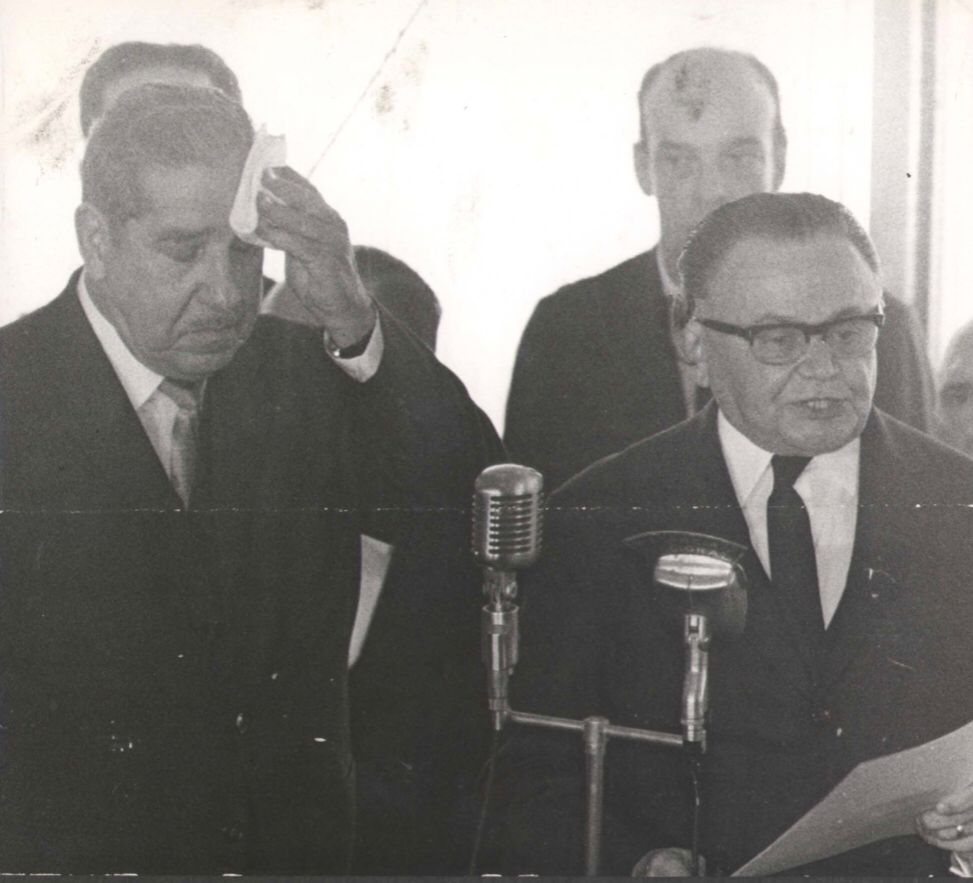Document of the week! A “warning note” at a “critical juncture”
Check out the full document in our collection: Telegram from John Wills Tuthill to the State Department in Washington DC regarding the presidential succession from Castello Branco to Costa e Silva

A “warning note” at a “critical juncture”
After the military took power in April 1964, White Castle assumed the presidency of the Republic and Costa e Silva the post of Minister of War. Increasingly dissatisfied with the direction of the administration (especially due to economic austerity and the lack of protagonism of a group of military personnel who called for even more authoritarian measures, the “hard line”), Costa left office in 1966 and began campaigning to become president. Indirectly elected by a deformed Congress, he would travel to Washington to meet the president Johnson in January 1967.
In this week's NACE CNV-Brasil document, dated March 2, 1967, the United States ambassador to Brazil, John Tuthill, sends a detailed telegram to the State Department in Washington stating that he has numerous indications that the new Costa e Silva administration (he would be sworn in on the 15th) would be “radically different” in style and perhaps in certain substantive matters compared to the Castello Branco government.
After Washington had “three years of close collaboration and even identification with the Castello Branco government”, the ambassador highlighted that there was a “general political upheaval” in the country – observed not only in ARENA (governing party) and MDB (opposition) –, but in several political groups not represented in the government and in the “politically active portion of the military”. The “marking characteristic” of the new cabinet of ministers, according to Tuthill, would be “the number of open critics of the current regime”, especially the “hard line”. Even admitting that this was not a “stable” and “politically cohesive” group, Tuthill considered that it could “generate almost irresistible pressure on certain topics”.
Finally, despite admitting that the telegram sounded like a “warning note”, the ambassador stated that he saw no alternative to offering support to the new government. Without this support, Tuthill continued, he would have “little chance of success”. He considered it a “critical juncture” and that “reticence or hesitation” on the part of Washington would only increase the “risk of extremism”, coming from the left or right, in the future.
Tuthill's concerns would not prove unfounded. Civil society mobilizations and actions by the armed left put pressure on the government, which responded brutally by decreeing the AI-5 in December 1968. The document clearly illustrates the concern of the North American representative about the possibility of the closure of the Brazilian dictatorship as early as March 1967. This type of warning would become more frequent throughout the 1967-68 biennium.
Dr. Gianfranco Caterina,
Researcher at NACE CNV-Brazil,
Postdoctoral fellow at the Institute of International Relations at the University of São Paulo
